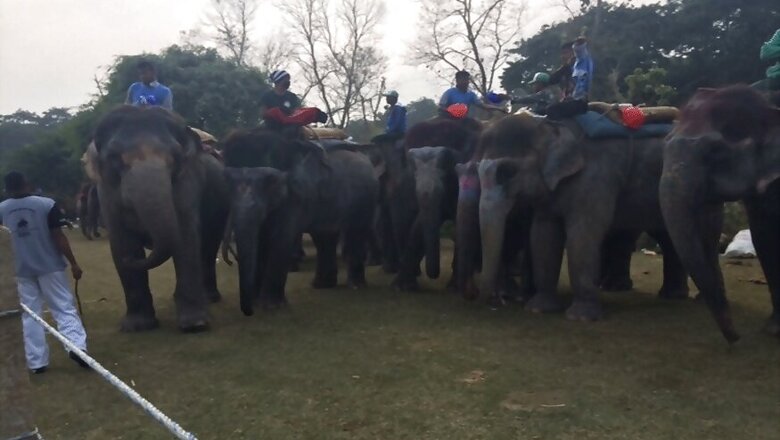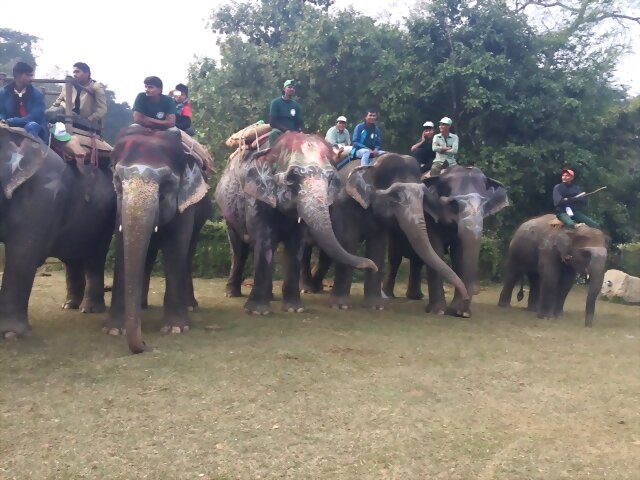
views
Nepal (Sauraha): The small Himalayan country caught between China in the north and India to the south, has been able to achieve 365 days of zero poaching twice: in 2011 for rhinos, and for 12 months ending February 2014, for rhinos, tigers and elephants.
This is one of the biggest reason for celebrations as Sauraha celebrated the 13th Chitwan Elephant Festival, a five-day event that started from December 26, Monday to December 30, Friday.

“Nepal is proof to the fact that a zero poaching percentage can be achieved, which has only been possible due to the strong commitment from the forest authorities to highest levels of ministers in the government to several conservation heroes like rangers and community antipoaching patrols.
This festival is a strong reminder of the zero poaching status here in our country and also helps boost our tourism industry,” said Keshav Pandey, media coordinator of the Regional Hotel Association Nepal.
The event started with an elephant walk from the elephant breeding centre to a complete march in the entire village followed by a Tharu cultural show to the Bachauli ground in Sauraha here. Tharu is the local tribe of Chitwan.
The festival attracts about 20,000 domestic and foreign tourists.
The five-day event showcases elephant walk, elephant polo, elephant calf football, elephant beauty contest, elephant picnic, and elephant painting.

Pandey said the festival aims to exhibit human-wildlife relations rather than mere amusement. “We also want to welcome animal rights activists to the event and ask them to point out any mistreatment with animals throughout the festival,” added Pandey.
Nepal has taken important steps to protect nature through distinguished bodies like the National Tiger Conservation Committee, chaired by the Prime Minister.
The Wildlife Crime Control Coordination Committee is led by the Minister of Forests and Soil Conservation with representatives from enforcement and security agencies such as Nepal Army and Nepal Police. The Wildlife Crime Control Bureau, a body represented by enforcement agencies that could help control wildlife crime, now has 16 district cells that has improved enforcement in order to stop poaching and curb wildlife crime.

Nepal’s national agenda deeply focusses on conservation of its rich biodiversity. The Himalayan country now has 10 national parks, three wildlife reserves, and six conservation areas that cover more than 13,000 square miles—23 percent of the country—an area larger than the US state of Maryland. Nepal also shares the Terai Arc Landscape with India, one of the most biologically important areas on earth and is home to tigers, rhinos, elephants and Gangetic dolphins.




















Comments
0 comment